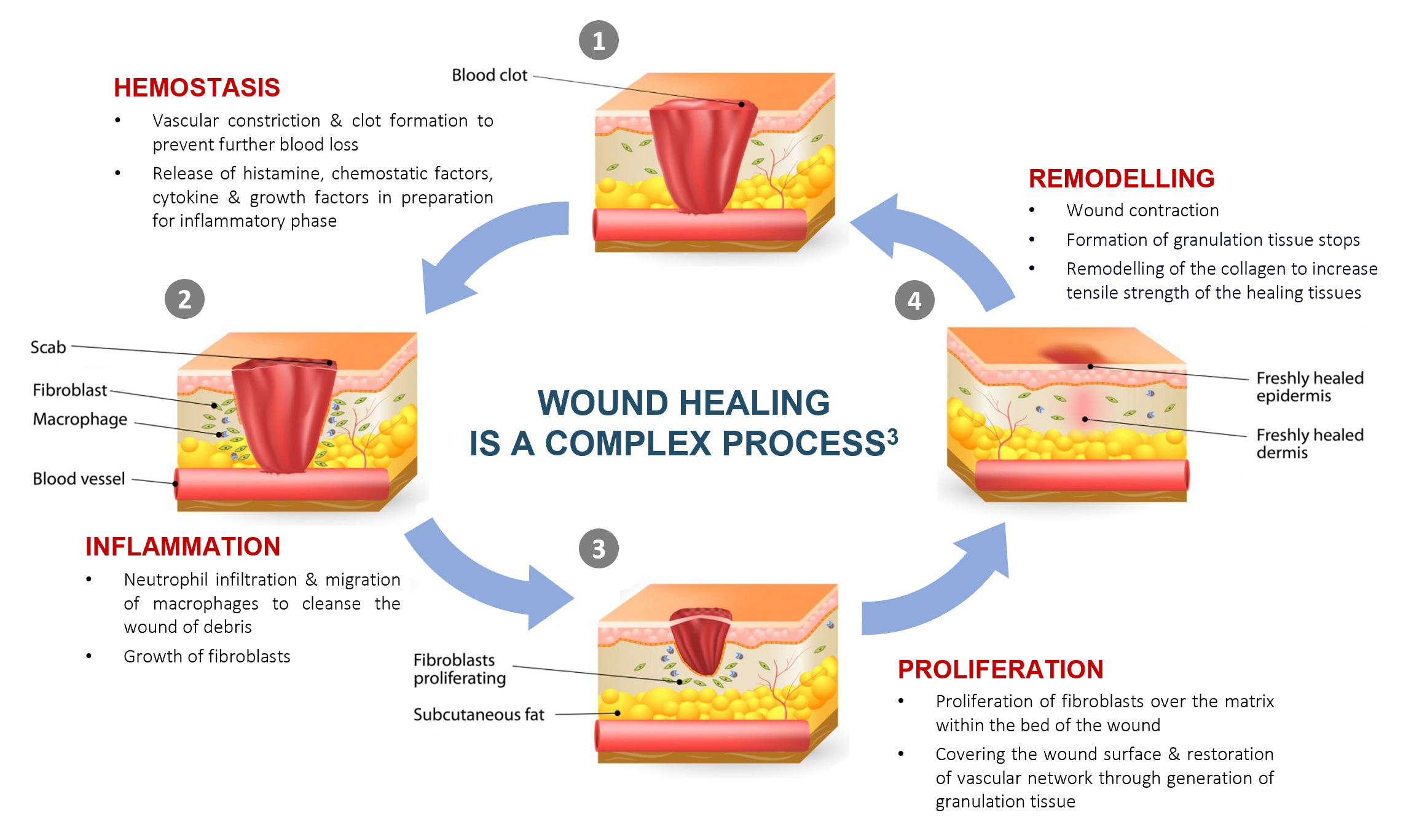Technologies
Pipelines
Locate Us
- 3 Little Road, CRF Building, #07-02, Singapore 536982
- info@pantheralabs.co
Chronic wounds, also refer to as non-healing wounds, fail to proceed through the normal phases of wound healing in an orderly and timely manner, and remain open for more than a month. Patients suffering from diabetes and obesity are at high risk of developing chronic wounds2. Thirty percentage of untreated wound resulted in amputation with 30% of amputees having a 50% mortality rate within 5 years.
Common features of chronic wounds :



Panthera Labs’s proprietary formulation of MEV-Epi has the potential to correct the defective healing process in chronic wounds by reducing inflammation and recruiting various cells required to restore the tissue architecture and function at the wound site. We believe in the potential of MEV-Epi to alleviate the pain and disease risk of patients suffering from chronic wounds.
What MEV-Epi offers

References